Revisiting the ‘The Grand Budapest Hotel’
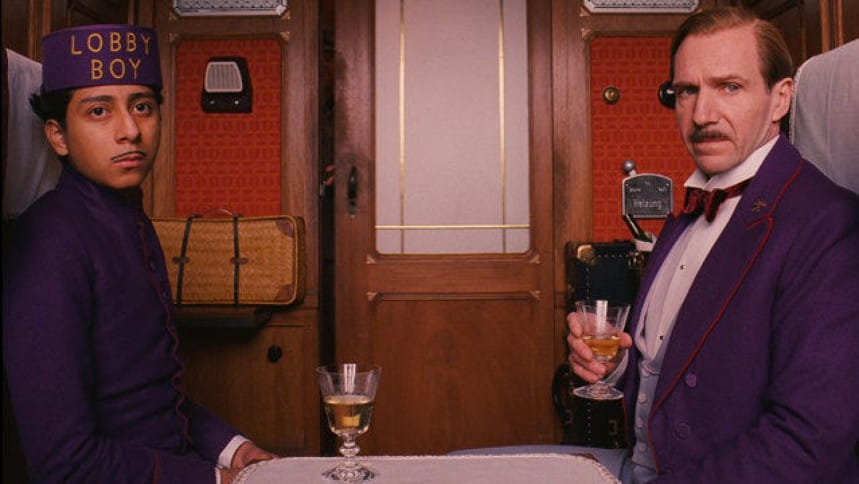
Wes Anderson has served as some sort of metronome in American cinema for more than 25 years, a mainstream integration of the general notions of indie, which is often one of the easiest words to say with a sneer.
Every few years, Anderson will do his thing and, as movie culture transforms around him, his consistency can feel like a bit, even though the content of his movies contains quite a lot of range in theme and subject matter.
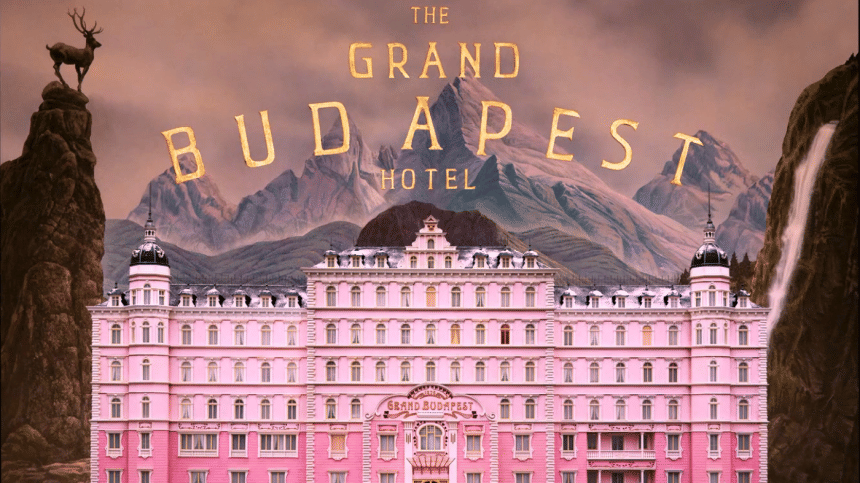
In a swelling sea of IP, with sequels piling up and universes expanding, Anderson has set movies in a train in India, a research vessel out at sea, and a fictionalised Japan. He's focused on the inner lives of children, of animals; he's coaxed great performances out of multiple generations of Oscar winners and also decided to turn his attention to stop-motion animation twice, for no reason other than the fact that he felt like it and it looked nice.
On the topic of looking nice, if I have to conjure a pure Wes Anderson scene in my mind, I think of a bright red elevator, two bellhops standing motionless in a deep royal purple dinner coat with brass buttons to match their concierge, Gustave H, a stoic, pretentious tyrant in his lovely little kingdom of "The Grand Budapest Hotel".
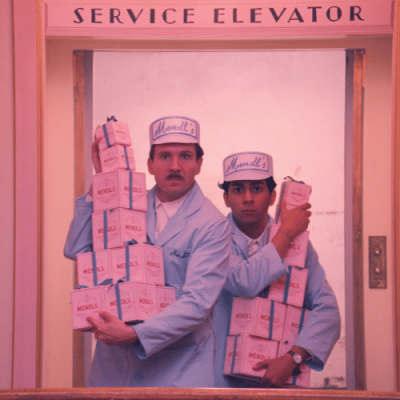
Gustave sits, holding the hand of his elderly guest/patron/lover who is leaving the hotel and, as she grows feebler and fascism encroaches on the fictional European country of Zubrowka, she's afraid she'll never return. After telling her that he finds her choice of nail polish to be physically repulsive, he tries to comfort her. He recites a classic poem, all pretty nature imagery; everything in the shot remains perfectly still, except for her head, which moves to rest on his shoulder as he speaks.
Every detail of this scene, which lasts for less than a minute, is flawless in every way: it is startling, quirky, tender, almost self-parody.
Set in the fictional European country of Zubrowka in the 1930s, the film tells the story of Gustave H (Ralph Fiennes), the legendary concierge of the Grand Budapest Hotel, and his loyal protégé Zero (Tony Revolori). The two embark on a wild adventure when Gustave is accused of murder, and they must clear his name while navigating through a world on the brink of war.
The film showcases Anderson's storytelling abilities, with a complex narrative structure that jumps back and forth in time. Despite the intricate plot, Anderson manages to maintain a sense of coherence and clarity, making the film a joy to follow.
Throughout, we are in the fictional Republic of Zubrowka, a mountainous region where various cartographers from different ages may have drawn on the distant marches across various empires, such as the Ottoman, Austro-Hungarian, or Soviet, or may have completely erased.
The primary narrative is presented in constrictive, boxy dimensions that are reminiscent of films from the 1930s. However, there are two frames that surround this story, which is, in fact, a flashback within a flashback.
While Anderson's films are often described as quirky and whimsical, his ability to balance humour and drama have made him one of the most respected and admired filmmakers of his generation. As much as "The Grand Budapest Hotel" attempts to be a cinematic confection, it does so in order to confront humanity's very raw and real front from a peculiar but incredibly insightful perspective.
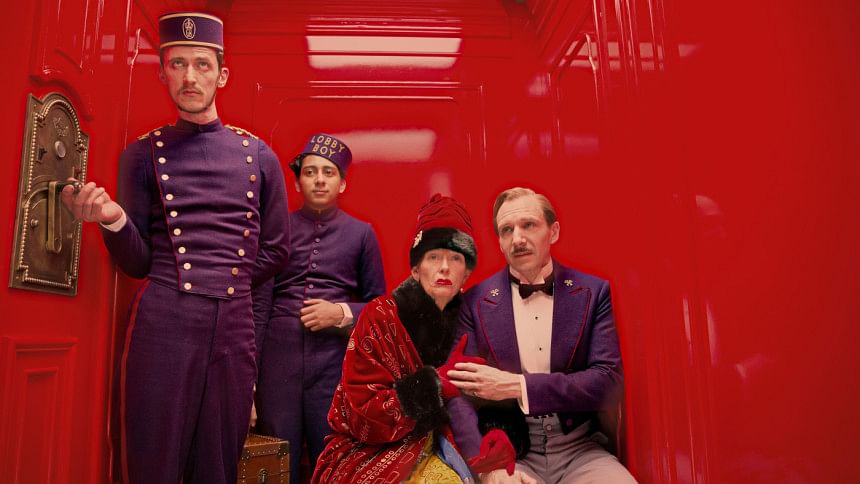
At its heart, "The Grand Budapest Hotel" is about the masks we create to fit our objectives and the price of maintaining appearances. With this film, Anderson the illusionist has produced a consoling and uplifting work of art. He is more than graceful; he is dazzling. Even though it's an illusion, it's not a lie.
In Anderson's films, a character often walks us through the rooms of the imagined world in dolly shots, but in this one, the protagonist notices the details, spiffs them up along the way, and acts as a comedic foil with the intensity of feeling he saves only for things like an oddly shaped hat.
It's all Gustave and his protégé Zero, a young refugee enthralled by the same vision, want to care about, along with Zero's love story with a girl named Agatha, which Gustave treats with sweet, preposterous paternal pride. Their immaculate haven is quite literally under siege, and they seem to care less about the danger than the beauty that will be lost. It's an impulse that is maddening and maybe pointless, but also maybe noble. Filled with chaos and humanity, it's hard not to think of another wonky masterpiece of beauty set against the backdrop of anti-beauty.
The film is a visual feast, with every frame bursting with detail and colour. Anderson's signature use of pastel colours, symmetrical compositions, and nostalgic imagery is taken to new heights in "The Grand Budapest Hotel", creating a fantastical world that is both whimsical and grounded in reality.

The soundtrack is also an integral part of the film's storytelling and atmosphere. The film's score, composed by Alexandre Desplat, is a whimsical and delightful blend of orchestral and traditional European music that perfectly complements the film's quirky and fantastical world.
One of the most notable musical elements in the film is the use of leitmotifs, a recurring musical theme associated with a particular character or idea. For example, Gustave H's leitmotif is a playful and upbeat melody that is often used to underscore his charm and charisma. The use of leitmotifs adds depth and complexity to the film's characters and themes, giving the music a storytelling function. Anderson incorporates classical music pieces into the score, such as Vivaldi's "Concerto for Lute and Plucked Strings" and Schubert's "Piano Sonata No. 20", which gives the film a sense of timelessness and elegance.
The performances in "The Grand Budapest Hotel" are outstanding, particularly Ralph Fiennes, who gives a career-defining performance as Gustave. Fiennes brings a unique blend of charm, wit, and vulnerability to the character, making him both lovable and complex. The chemistry between Fiennes and Tony Revolori is also a standout, with their mentor-mentee relationship serving as the heart of the film.
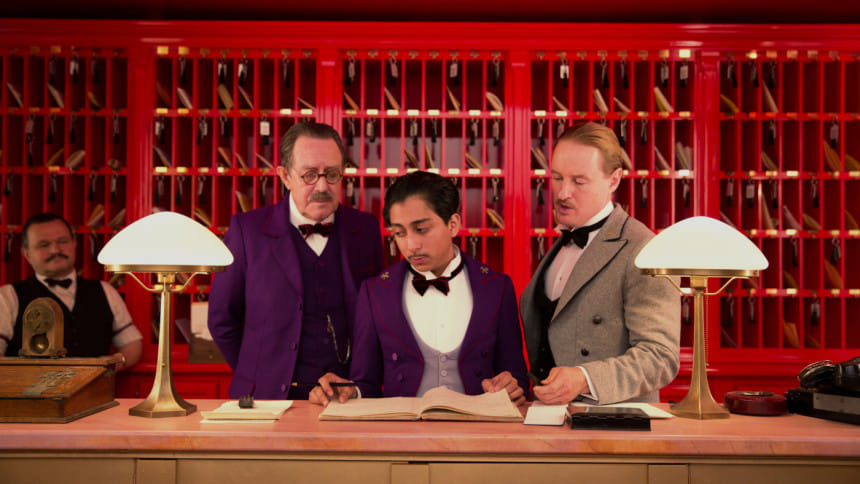
The supporting cast is equally impressive, featuring a star-studded ensemble that includes Bill Murray, Tilda Swinton, Edward Norton, Willem Dafoe, Jeff Goldblum, Owen Wilson, Léa Seydoux, and Saoirse Ronan. Each actor brings their own unique flair to their respective roles, adding depth and nuance to the film's already rich and vibrant world.
"The Grand Budapest Hotel" is a significant film in Wes Anderson's career for several reasons. It marks a culmination of his style, creativity, and vision that had been building up in his previous films. The film's success also marked a turning point in Anderson's career, bringing him wider acclaim and cementing his status as a major player in the film industry.
"The Grand Budapest Hotel" was a critical and commercial success, earning nine Academy Award nominations and winning four, including Best Production Design, Best Costume Design, Best Makeup and Hairstyling, and Best Original Score. The film marks a major turning point in Anderson's career, solidifying his place as one of the most unique and influential filmmakers of his generation.

 For all latest news, follow The Daily Star's Google News channel.
For all latest news, follow The Daily Star's Google News channel. 



Comments